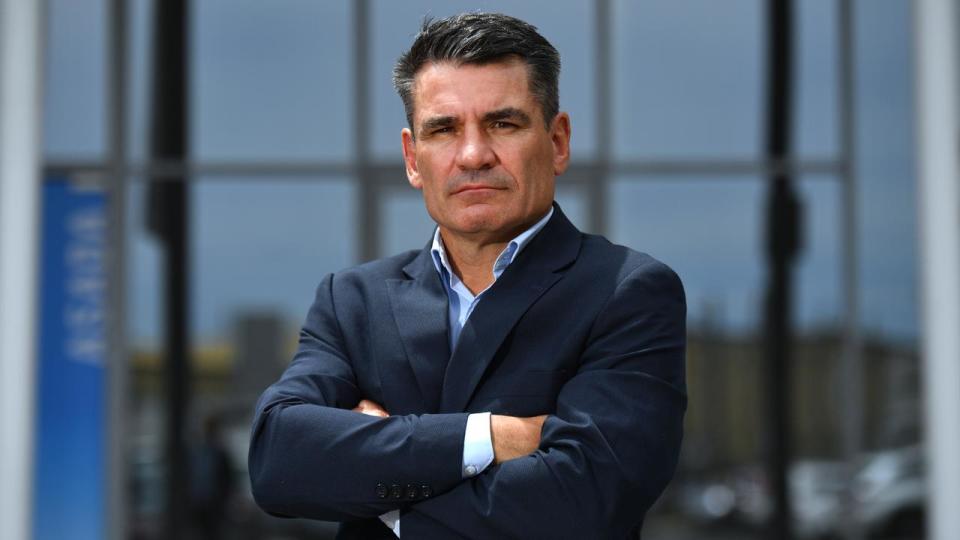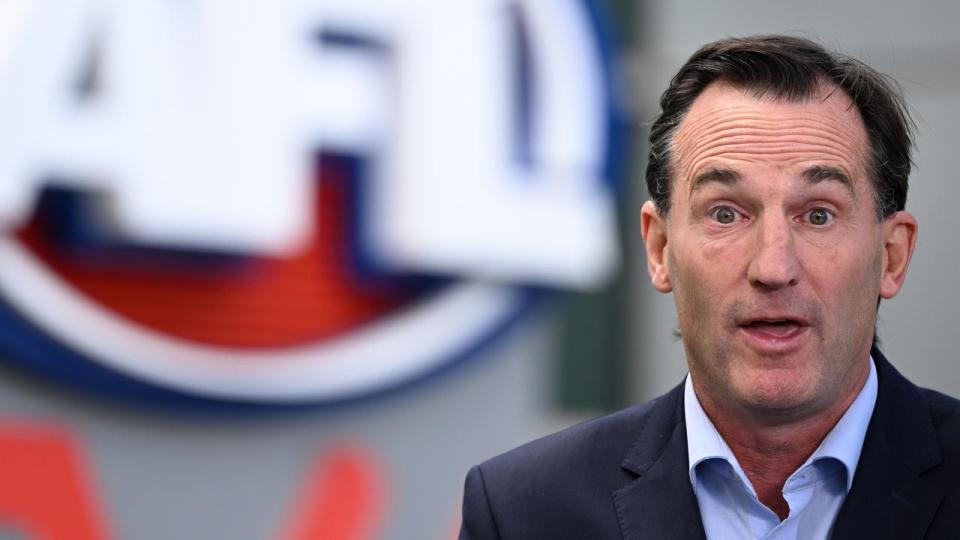Integrity body wants overhaul of AFL illicit drug code
The controversial AFL illicit drugs policy needs an "immediate overhaul", with Sport Integrity Australia (SIA) citing concerns about "perceptions of secrecy for more sinister motives".
While Australia's anti-doping body cleared the AFL of bombshell allegations raised in federal parliament, SIA also made a series of recommendations about the illicit drugs code.
The investigation into claims made by MP Andrew Wilkie has also prompted SIA chief executive David Sharpe to warn that "all Australian sport has reached a crossroad in dealing with illicit drug use, player mental health and wellbeing and criminal infiltration of sport.
"Significant intervention is required immediately to address the illicit drug culture in sport and the increasing and unacceptable risks posed to players, officials, clubs and sporting codes."
SIA said the policy was created in 2005 "with good intent" and it noted the AFL is one of few Australian sports to have illicit drugs code, separate to an anti-doping policy.
But it was also sharply critical, saying the confidential nature of the AFL's illicit drugs policy's medical model had created a "level of suspicion".

"The very nature of medical confidentiality and associated lack of information and public facing education around the operating model, has led to perceptions of secrecy for more sinister motives, including brand protection and subversion of the world anti-doping code," Sharpe said.
"The illicit drug landscape was different in 2005 when the AFL's illicit drugs policy was first developed to that of today and dictates the need for an immediate overhaul of the current policy to bring it into line with current societal trends and increasing integrity and health threats in sport."
AFL chief executive Andrew Dillon welcomed the SIA report that was released on Monday, saying the body found "zero evidence" that supported the claims.
But Wilkie said the AFL had dodged a WADA breach "on a technicality" and he doubled down on his claims, adding he also welcomed the SIA report.
"The fact remains that secret tests were conducted, which facilitated illegal drug use and helped ensure there were no positive matchday tests," Wilkie said.
"SIA is adamant any new AFL drugs policy must outlaw non-sanctioned drug tests. How on earth could the AFL have ever thought it was OK to run these tests which were kept secret from the media and fans?"
There are seven key recommendations in the SIA report, including independent oversight of the league's illicit drugs policy.
In late March, Wilkie used parliamentary privilege to allege widespread drug use at AFL club Melbourne and a league-wide secret testing regime.
That sparked the SIA investigation, and its findings were made public on Monday morning.
"The assessment ... significantly identified there were no breaches of the World Anti-Doping Code through any anti-doping rule violation by AFL players or support personnel or that injuries were feigned to cover up for positive drug testing during the week by the AFL or club doctors," SIA said in a statement.
"Through the assessment, SIA identified integrity threats posed by the purchase of illicit drugs by players and noted this is an issue relevant to all sport in Australia.
"SIA recommends the continued expansion of the AFL's intelligence capability to manage emerging threats."
The eight recommendations also include the need for greater education on the AFL's illicit drugs code and the anti-doping policy.
The AFL said in a lengthy statement that it "welcomed" the SIA report.
"SIA concluded that there are no irreconcilable inconsistencies between the AFL's illicit drugs policy and the national anti-doping scheme," the league said.

"The AFL also welcomes SIA's assessment that (it) 'found no evidence to suggest testing by the AFL or club doctors was in breach of the WADA code, or that injuries were feigned to cover up for positive drug testing during the week by the AFL or club doctors'.
"SIA also found that 'most players adhere to the AFL's illicit drugs policy and intervention model in good faith, however some players will and do find ways to get around the system, and while this is not ideal, no policy or process is without weaknesses'."
The AFL added the SIA recommendations would be considered as part of the league's current review of its illicit drugs policy.
